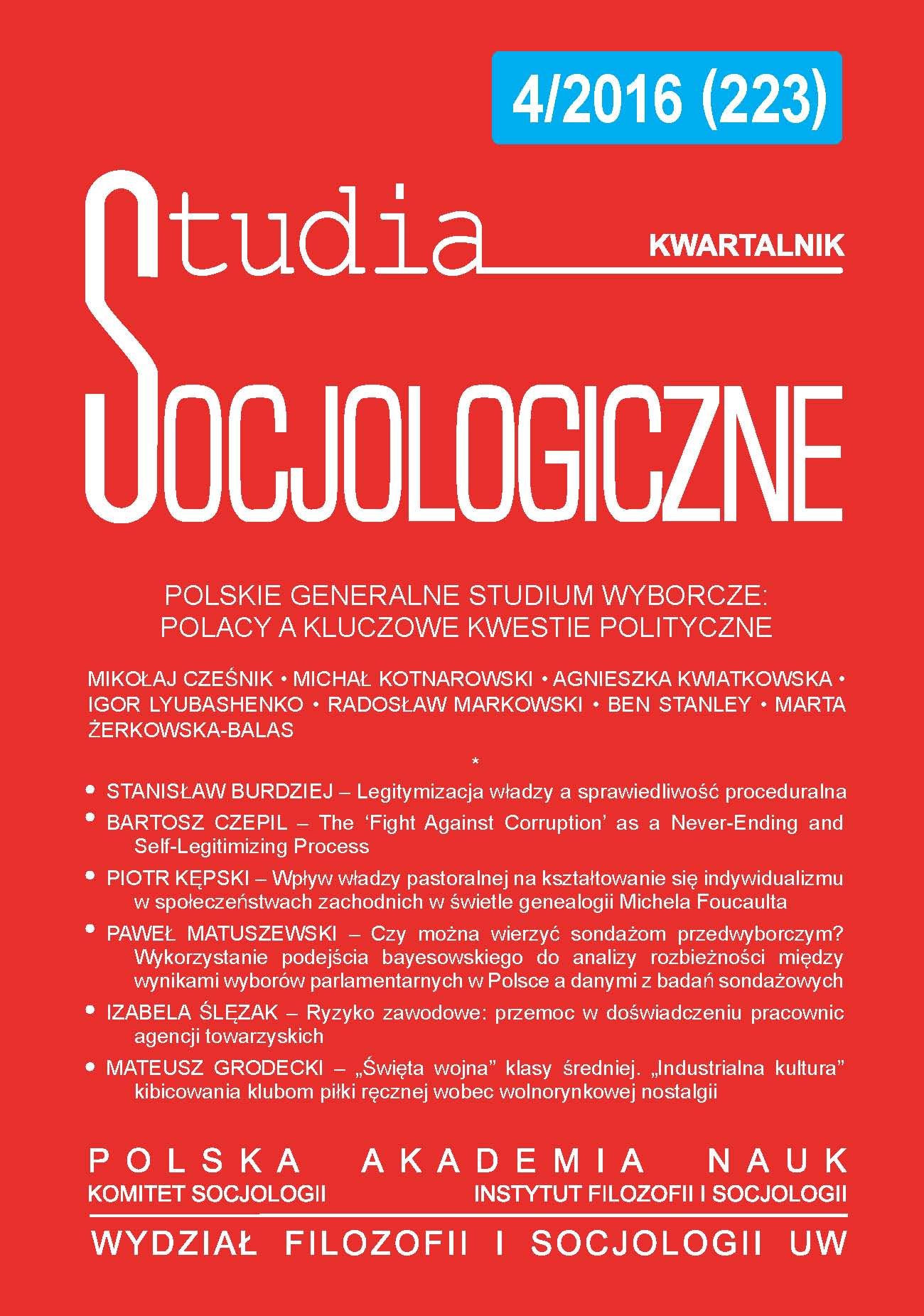Czy można wierzyć sondażom przedwyborczym? Wykorzystanie podejścia bayesowskiego do analizy rozbieżności między wynikami wyborów parlamentarnych w Polsce a danymi z badań sondażowych
Can Pre-Election Polls Be Believed? Use of a Bayesian Approach to Analyse the Disparity Between Parliamentary Election Results in Poland and Survey Data
Author(s): Paweł MatuszewskiSubject(s): Social Sciences, Sociology, Sociology of Politics
Published by: Instytut Filozofii i Socjologii Polskiej Akademii Nauk
Keywords: political forecasts; pre-election polls accuracy; election polling; Bayes; MCMC
Summary/Abstract: The aim of this article is to determine how well pre-election polls can predict the results of parliamentary elections, and what determines the accuracy of these predictions. The dependent variables are 1) the correct indication of the winning party and 2) the accuracy of election surveys in forecasting voters’ support. The first independent variable is the time between the poll and the date of the election. The second explanatory variable is the difference in results between the two parties with the greatest support. This study uses data from all publicly available polls that took place in the 12 months before every parliamentary election in Poland from 1993 to 2015. The analysis uses Bayesian hierarchical modeling and Markov Chain Monte Carlo simulation. The results show that the average probability that a pre-election poll will correctly predict the winning party is around 80%, whereas the probability that it will correctly predict the distribution of voters’ support (with 3% error margin) is around 50%. The evidence partially proved that the forecasting accuracy of an election poll is the better the closer the poll is taken to the date of the election. It was also proved that the ability of a poll to predict the winner is better the greater the gap between the survey results of the two leading parties.
Journal: Studia Socjologiczne
- Issue Year: 223/2016
- Issue No: 4
- Page Range: 253-276
- Page Count: 24
- Language: Polish

